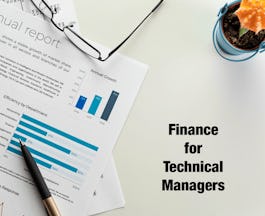Filter by
The language used throughout the course, in both instruction and assessments.
Choose the Financial Engineering Course That Aligns Best With Your Educational Goals

Columbia University
Skills you'll gain: Finance, Risk Management, Probability & Statistics, Leadership and Management, Mathematics, Investment Management, Securities Sales, Securities Trading, Computer Programming

Columbia University
Skills you'll gain: Finance, Mathematics, Probability & Statistics, Risk Management, Securities Sales, Securities Trading

Duke University
Skills you'll gain: BlockChain, FinTech, Finance, Algorithms, Cryptography, Payments, Banking, Risk Management, Contract Management, Computational Logic, Innovation, Regulations and Compliance, Securities Trading, Data Mining, Strategy and Operations, Cyberattacks, Financial Analysis, Security Engineering

New York University
Skills you'll gain: Machine Learning, Human Learning, Machine Learning Algorithms, Algorithms, Finance, Mathematics, Regression, Statistical Machine Learning, Artificial Neural Networks, Data Analysis, Deep Learning, Reinforcement Learning, Tensorflow

University of Colorado Boulder
Skills you'll gain: Finance, Financial Analysis, Accounting, Investment Management, Cost Accounting, Leadership and Management, Financial Accounting, Financial Management, Strategy and Operations
 Status: Free
Status: FreeStanford University
Skills you'll gain: Finance, Banking, FinTech, Leadership and Management, Financial Management, BlockChain, Investment Management, Market Analysis, Product Strategy, Risk Management, Payments

Google
Skills you'll gain: Data Analysis, SQL, R Programming, Business Communication, Spreadsheet Software, Business Analysis, Data Visualization, Data Management, General Statistics, Big Data, Communication, Computer Programming, Data Science, Data Visualization Software, Databases, Exploratory Data Analysis, Extract, Transform, Load, Leadership and Management, Microsoft Excel, Problem Solving, Small Data, Statistical Programming, Tableau Software

Skills you'll gain: Python Programming, Data Science, Machine Learning, Data Analysis, Algorithms, Data Management, Data Visualization, Database Design, Human Learning, R Programming, Computational Thinking, Computer Programming, Database Application, Databases, Deep Learning, Exploratory Data Analysis, Machine Learning Algorithms, Plot (Graphics), Professional Development, SQL, Data Model, Statistical Machine Learning, General Statistics, Probability & Statistics, Regression, Reinforcement Learning, Big Data, Cloud Computing, Data Mining, IBM Cloud, Writing
 Status: Free
Status: FreeDuke University
Skills you'll gain: Business Development, Critical Thinking, Entrepreneurial Finance, Entrepreneurship, Finance, Innovation, Leadership and Management, Business Transformation, Decision Making, Planning, Professional Development

Columbia University
Skills you'll gain: Finance, Risk Management, Computer Programming

SkillUp EdTech
Skills you'll gain: Data Management, Data Visualization, Databases, SQL, Database Administration, Database Application, Database Design, Microsoft Excel, Data Structures, Python Programming, Data Analysis, Data Architecture, Database Theory, Spreadsheet Software, Plot (Graphics), Data Model, Data Warehousing, General Statistics, Mathematical Theory & Analysis, Basic Descriptive Statistics, Probability & Statistics, Statistical Analysis, Statistical Tests, NoSQL, PostgreSQL, Professional Development, Statistical Visualization, Business Analysis, Computational Thinking, Data Visualization Software, Data Mining, Data Science, Interactive Data Visualization, R Programming, Tableau Software, Business Intelligence, Forecasting

Google
Skills you'll gain: Agile Software Development, Software Engineering, Project Management, Scrum (Software Development), Strategy and Operations, Collaboration, Leadership and Management, Communication, Entrepreneurship, Product Management, Influencing, Problem Solving
Searches related to financial engineering
In summary, here are 10 of our most popular financial engineering courses
- Financial Engineering and Risk Management: Columbia University
- Introduction to Financial Engineering and Risk Management: Columbia University
- Decentralized Finance (DeFi): The Future of Finance: Duke University
- Machine Learning and Reinforcement Learning in Finance: New York University
- Finance for Technical Managers: University of Colorado Boulder
- How Software Ate Finance: Stanford University
- Google Data Analytics: Google
- IBM Data Science: IBM
- Renewable Energy and Green Building Entrepreneurship: Duke University
- Advanced Topics in Derivative Pricing: Columbia University










